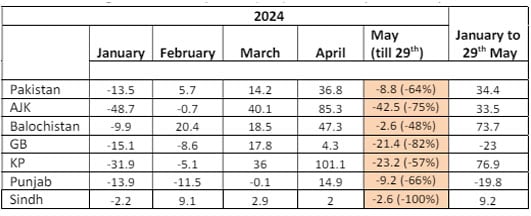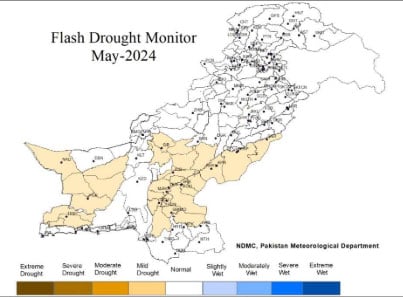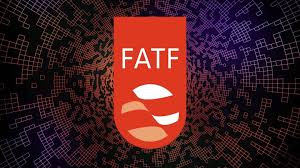Flash drought-like situation is predicted in the heatwave impacted regions in the country, the National Drought Monitoring Centre (NDMC) of the Pakistan Meteorological Department (PMD) said in an advisory.
The NDMC said that flash drought, triggered by heatwaves, may result in rainfall shortage in the country this year.
“Keeping in view the impact of the heatwave, the flash drought-like situation may emerge over most of the high-temperature regions of the country,” said the weather department in its advisory.
The flash drought, according to the drought monitoring centre, occurs when low rainfall is accompanied by consistent abnormally high temperatures e.g., heatwaves over a short period of time.
It added that flash droughts develop and intensify very quickly, often within weeks or even days. These rapid changes can quickly raise evapotranspiration rates and remove available water from the top layer of the soil.

“The country overall received slightly above normal rainfall from January to 29th May, 2024. However, the below normal rainfall and soaring temperature of May with consistent heatwave period particularly in southern parts of Pakistan, flash drought may likely emerge,” it stated.
According to the NDMC, May and June are generally the hottest months with higher probability of heatwaves. “Due to an abrupt increase in day and night time temperatures for the last three weeks, the heatwave episodes are observed.”

The drought monitoring body added that the weather leads to increase in the land surface temperature and evaporative demands and has resulted in soil moisture stress.
The drought vulnerable districts of particularly southern half of the country (Sindh, Balochistan, South Punjab) including Tharparkar, Cholistan , Thal as well as rainfed regions may experience flash drought in the coming days, it added.
“Keeping in view the climatology and current forecast for the month of June, drought conditions may exacerbate and affect the agriculture, water resources and live stocks, before the arrival of the summer monsoon,” the advisory mentioned.
It added that flash droughts can have a significant impact on agriculture, water resources, and ecosystems, and can also lead to crop failure, wildfires, and water shortages.
















































